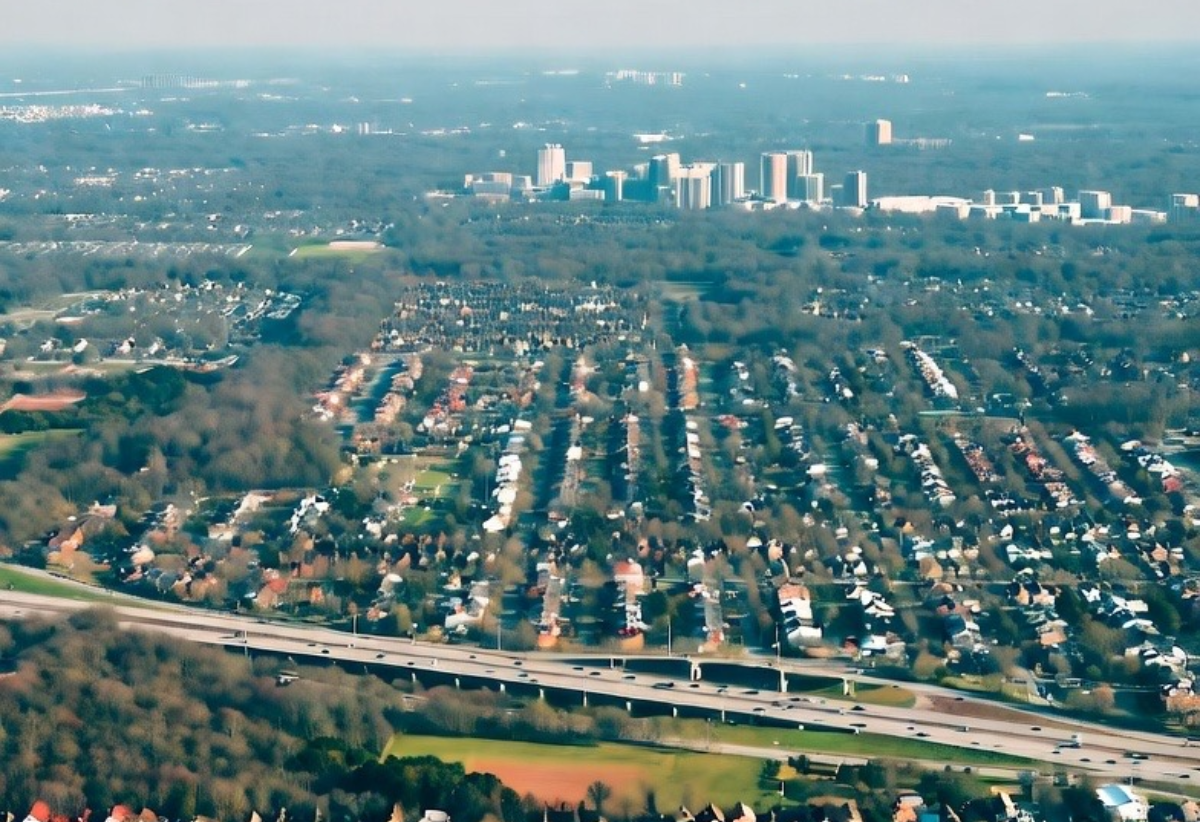Have you ever wondered who owns many of the parcels of land you pass by or utilize every day? Atlanta’s urban nature means “landownership” is often measured by total acreage across parcels, including campuses, parks, and developments.
In this article, we’ve compiled this list based on the most recent available data from property records, municipal reports, and market analyses.
Who Owns the Most Land in Atlanta?
Gone are the days when moguls controlled huge swaths of countryside of America. Public entities dominate due to large-scale holdings like airports and educational facilities.
Private ownership tends to focus on fragmented urban lots, with estimates derived from unit counts and average lot sizes (approx. 0.2 acres per single-family home).
Note: Exact figures can fluctuate with acquisitions or rezoning; these reflect October 2025 assessments. Acreage includes developed and undeveloped land under single-entity control.
| Rank | Landowner | Type | Estimated Total Acreage in Atlanta | Key Holdings/Notes |
|---|---|---|---|---|
| 1 | City of Atlanta | Public (Municipal) | ~9,700 acres | Includes Hartsfield-Jackson Atlanta International Airport (4,700 acres), city parks and green spaces (5,000 acres managed by Dept. of Parks & Recreation). Largest by far due to aviation and recreation infrastructure. |
| 2 | Emory University | Private (Educational) | 631 acres | Main Atlanta campus in Druid Hills; includes academic buildings, research facilities, and green spaces. Titles held via Emory’s endowment trusts. |
| 3 | Atlanta Public Schools (APS) | Public (Educational) | ~1,090 acres | 82+ school sites across elementary, middle, high, and specialty facilities; total from FY2023 district inventory (stable since 2022). Deeds primarily in Fulton/DeKalb Counties. |
| 4 | Georgia Institute of Technology (Georgia Tech) | Public (Educational) | 400 acres | Midtown campus with academic, residential, and research parcels; expanding via recent acquisitions in Technology Square area. |
| 5 | Invitation Homes | Private (Corporate/REIT) | ~1,600 acres (est.) | ~8,000 single-family homes in metro Atlanta; largest corporate residential landlord by unit count. Acreage estimated from average lot sizes; focused on suburban rentals. |
| 6 | Pretium Partners | Private (Corporate/Investor) | ~1,400 acres (est.) | ~7,200 homes; second-largest institutional single-family owner, with heavy concentration in South Fulton and DeKalb. |
| 7 | Amherst Holdings | Private (Corporate/Investor) | ~800 acres (est.) | ~4,000 homes; key player in post-foreclosure acquisitions, titles often under subsidiary LLCs. |
| 8 | Cousins Properties | Private (REIT) | ~500 acres (est.) | Major office portfolio (e.g., 10M+ sq ft in Midtown/CBD); land under buildings/parking estimated from site footprints. Top office owner per 2022-2024 reports. |
| 9 | Prologis | Private (REIT) | ~450 acres (est.) | Industrial/warehouse holdings in South Atlanta and airport vicinity; leads in logistics space (50M+ sq ft total). |
| 10 | Cortland | Private (Multifamily Operator) | ~400 acres (est.) | 75,000 multifamily units nationally, with significant Atlanta portfolio (10,000 units); Atlanta-based HQ, focused on urban apartments. Acreage from community sites. |
Additional Insights
- Public vs. Private: Public entities control ~70% of Atlanta’s largest holdings, emphasizing infrastructure and education. Private owners like REITs dominate commercial/multifamily but hold smaller contiguous parcels.
- Trends in 2025: Recent mergers (e.g., Rayonier-PotlatchDeltic HQ relocation) boost corporate presence but focus on rural timber, not city land. Urban land scarcity drives vertical development over acreage growth.
- Data Sources: Derived from Fulton County deeds, APS facilities reports, university profiles, NMHC multifamily rankings, and Georgia State University studies on corporate rentals. atlantapublicschools.
- For specific deed searches or title verification, contact Fulton County Clerk of Superior Court or provide parcel IDs for detailed lookups.
Final Word
Landownership is still one of the main drivers of wealth in America — and Atlantans are on the short end of the stick.
Atlanta’s real estate has delivered consistent returns, with home and land values rising 7–9% annually over the past decade—far outpacing the national average. In 2025, metro counties like Fulton (45% appreciation) and Cherokee (38%) lead due to tech expansions and job influxes. This makes land a hedge against inflation, turning modest parcels into wealth-builders over time.
If you want to become a property owner, read our guide on how to buy land.
More Articles From AtlantaFi:





